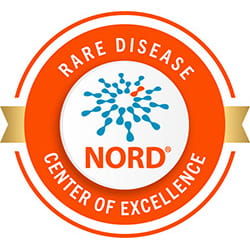Specialized Treatment for Allergic and Immunologic Disorders
When your child needs care for asthma, primary immune deficiency, food allergy, latex allergy, drug allergies or insect sting sensitivity, our experts can help.
Physicians within the Division of Allergy and Immunology are leading practitioners, and many have expertise in uncommon ailments such as eosinophilic disorders and drug allergy.
We offer comprehensive inpatient and outpatient services including consultation, diagnostic testing and treatment for many conditions. We also provide opportunities for clinical research studies.
Our Mission
To improve the health of children with allergic and immune conditions through innovative research, outstanding clinical care and education of the current and next generation of leaders in healthcare and research.




